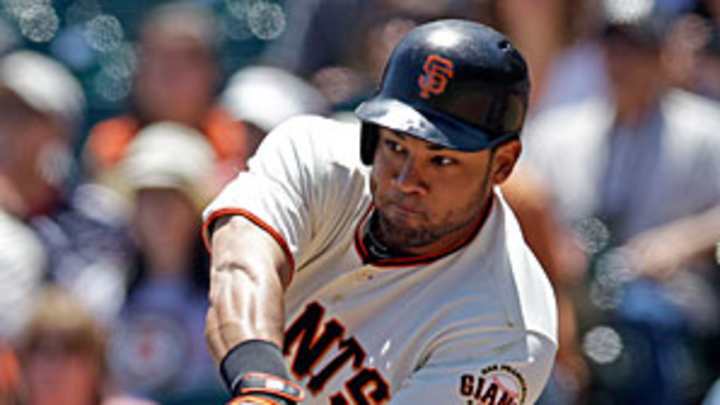Melky Cabrera's decision sets dangerous precedent for MLB

Melky Cabrera was hitting .346 when he was suspended 50 games last month for failing a drug test. (AP)
Back in August when Melky Cabrera was suspended 50 games for testing positive for using a performance-enhancing substance, I wrote:
Some have fretted over Cabrera potentially winning the NL batting title even while suspended (and even one official plate appearance shy of the necessary 502); his .346 mark is four points behind that of Andrew McCutchen. But if the home run exploits of Mark McGwire, Sammy Sosa, Barry Bonds and others can remain on the books — to say nothing of the results of the fixed 1919 World Series — then so should Cabrera's statistical accomplishment, which after all is an objectively determined rate statistic and not an arbitrarily determined award. While the Olympics and NCAA do vacate results that have been revealed to be tainted by one means or another, those organizations have their own scandals and shortcomings, and should hardly be held before MLB as paragons of integrity and justice.
On Friday afternoon, the idea of erasing Cabrera's potential batting title became a reality. CSN Bay Area's Andrew Baggarly reported that Major League Baseball, union officials and the shamed Cabrera have struck an agreement — a "one-time amendment" — whereby baseball will waive Rule 10.22(a). Via the agreement, the phantom at-bat will not be used to determine Cabrera's final standing in the race, leaving him one plate appearance short of qualifying for the title. "Under terms of the agreement, Rule 10.22(a) will not apply to suspended players," wrote Baggarly, adding that via statement, Cabrera said that he had "no wish to win an award that would be tainted… it would be far better for someone more deserving to win."
The move is an odd and unsettling one. Again, the batting title isn't a subjective honor voted on by the media or uniformed personnel, it's simple mathematics, a statistical record of what actually happened, and to make an exception to precedent opens up a can of worms that is destined to spill everywhere. We don't have any real idea what impact PEDs have on player performance; despite the home run records that fell at the feet of Mark McGwire, Sammy Sosa and Barry Bonds in the late 1990s and early 2000s, dozens upon dozens of other alleged users appear to have seen little to no performance gain, and even the gains of the tainted players may be distorted by the era of rapid change that included expansion, new ballparks, rule changes, and changes in the baseball itselfthat took home run rates to unprecedented highs.
How far will the revisionism go? Who knows when there will be a movement afoot to disallow Bonds' all-time home run record, the great bulk of which was achieved at a time when baseball neither tested for nor punished the use of such drugs? How soon until public pressure mounts to strip other players of awards (Sosa and Bonds' MVPs, or Roger Clemens' latter-day Cy Youngs) without iron-clad proof of violation, or to deny some team a division title as a means of sanction? What happens if instead of a batting title, the suspended player leads in home runs or RBIs — and maybe stands to prevent another player from a Triple Crown? This slippery slope may have no bottom.

Jay Jaffe is a contributing baseball writer for SI.com and the author of the upcoming book The Cooperstown Casebook on the Baseball Hall of Fame.